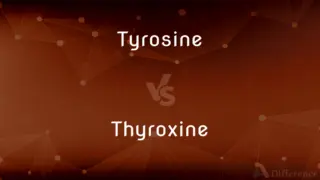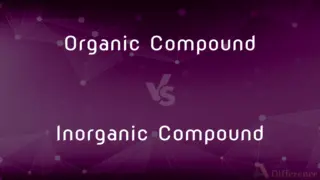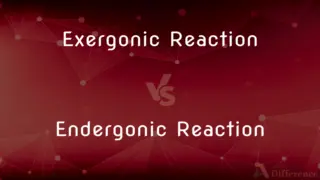Truly vs. Truthfully — What's the Difference?
By Tayyaba Rehman & Fiza Rafique — Updated on April 25, 2024
Truly conveys sincerity or emphasizes the veracity of a statement, whereas truthfully implies honesty in providing factual information.

Difference Between Truly and Truthfully
Table of Contents
ADVERTISEMENT
Key Differences
Truly is often used to express authenticity or depth of emotion, underscoring the sincerity of feelings or the genuine nature of an assertion. It can also serve to intensify the truth of a statement. Truthfully, on the other hand, directly refers to the act of being honest or factual, particularly when revealing information or responding to inquiries. It emphasizes the absence of falsehood or deception.
While "truly" enhances the emotional or emphatic weight of a statement, making it more heartfelt or profound, "truthfully" is more concerned with factual accuracy and integrity in communication. For example, saying "I truly believe in your potential" emphasizes belief and support, whereas "I answered truthfully" focuses on the honesty of the response.
The contexts in which these adverbs are used also differ; "truly" is versatile, appearing in both formal and informal expressions of earnestness or confirmation. "Truthfully," however, is primarily used in contexts where the truthfulness of an answer or statement is under scrutiny or of particular importance.
"Truly" can serve as a standalone response or closing in letters (e.g., "Yours truly") to signify sincerity or authenticity, while "truthfully" would appear out of place in such uses, as its application is more suited to situations calling for transparency about facts.
The choice between "truly" and "truthfully" thus depends on whether the speaker wishes to emphasize the emotional sincerity behind a statement or the factual honesty of the information being conveyed.
ADVERTISEMENT
Comparison Chart
Meaning
Expresses authenticity or sincerity.
Indicates honesty or factual accuracy.
Context
Used in both formal and informal settings to add emotional weight or confirm truth.
Primarily used where factual honesty is paramount or questioned.
Usage
Can intensify a statement or serve as a heartfelt affirmation.
Focuses on the honesty of information or responses.
Connotation
Emotionally charged, indicating depth of feeling or conviction.
Neutral, relating directly to truthfulness without emotional implication.
Examples
"I truly admire your work."
"Did you like the movie?" "Truthfully, no."
Compare with Definitions
Truly
In a truthful manner; with truth.
She truly understands the art of painting.
Truthfully
Expressing or revealing the truth.
She spoke truthfully about her experiences.
Truly
To emphasize the veracity or sincerity of one's words.
I truly believe we can make a difference.
Truthfully
In accordance with the truth; honestly.
He truthfully admitted to his mistake.
Truly
Sincerely or genuinely.
He was truly sorry for his late arrival.
Truthfully
In a manner that avoids deception or falsehood.
The witness testified truthfully in court.
Truly
Indeed; really; actually.
It was truly a magnificent performance.
Truthfully
Without lying or withholding information.
Can you truthfully say you did your best?
Truly
As a closing in letters to indicate sincerity.
Yours truly, John Doe.
Truthfully
To emphasize honesty in response to a question.
Truthfully, I was disappointed with the outcome.
Truly
In a truthful way
He speaks truly
Truthfully
Consistently telling the truth; honest.
Truly
To the fullest degree; genuinely or properly
Management does not truly understand about the residents
Truthfully
Corresponding to reality; true.
Truly
In actual fact or without doubt; really
This is truly a miracle
Truthfully
(manner) In a truthful manner
He spoke truthfully.
Truly
Loyally or faithfully
Why cannot all masters be served truly?
Truthfully
Frankly.
Truthfully, I didn't suspect a thing.
Truly
Sincerely; genuinely
We are truly sorry for the inconvenience.
Truthfully
With truth;
I told him truthfully that I had just returned from my vacation
He answered the question as truthfully as he could
Truly
Truthfully; accurately
Reported the matter truly.
Truly
Indeed
Truly ugly.
Truly
Properly
Not truly civilized.
Truly
(manner) In accordance with the facts; truthfully, accurately.
Truly
(modal) Honestly, genuinely, in fact, really.
That is truly all I know.
Truly, that is all I know.
Truly
(degree) Very.
You are truly silly.
Truly
In a true manner; according to truth; in agreement with fact; as, to state things truly; the facts are truly represented.
I can not truly say how I came here.
Truly
Exactly; justly; precisely; accurately; as, to estimate truly the weight of evidence.
Truly
Sincerely; honestly; really; faithfully; as, to be truly attached to a lover; the citizens are truly loyal to their prince or their country.
Truly
Conformably to law; legally; legitimately.
His innocent babe [is] truly begotten.
Truly
In fact; in deed; in reality; in truth.
Beauty is excelled by manly graceAnd wisdom, which alone is truly fair.
Truly
In accordance with truth or fact or reality;
She was now truly American
A genuinely open society
They don't really listen to us
Truly
By right;
Baseball rightfully is the nation's pastime
Truly
With sincerity; without pretense;
She praised him sincerely for his victory
Was unfeignedly glad to see his old teacher
We are truly sorry for the inconvenience
Truly
In fact (used as intensifiers or sentence modifiers);
In truth, moral decay hastened the decline of the Roman Empire
Really, you shouldn't have done it
A truly awful book
Common Curiosities
Is truly only used in positive contexts?
While often used positively, "truly" can be used in any context where sincerity or genuine conviction is being emphasized.
What does it mean to say something truly?
Saying something "truly" means it is said with sincerity, authenticity, or conviction.
How does the use of truly affect the tone of a statement?
"Truly" can make a statement more profound, heartfelt, or earnest, adding an emotional layer.
Does truthfully have an emotional connotation?
"Truthfully" is more neutral, focusing on the aspect of honesty rather than emotional depth.
Can truly and truthfully be used interchangeably?
They are not directly interchangeable as "truly" emphasizes sincerity or emotional truth, and "truthfully" focuses on factual honesty.
Is truly formal?
"Truly" can be both formal and informal, adapting to the tone of the conversation or text.
Can I end a letter with "Truthfully"?
While possible, it's more conventional to use "Truly" or "Yours truly" as a closing, as it conveys sincerity in a traditional manner.
When should I use truthfully instead of truly?
Use "truthfully" when emphasizing the honesty or factual accuracy of your statements or answers.
Does truthfully imply that one is often not truthful?
Not necessarily. "Truthfully" is used to underscore the honesty of a particular statement or response, especially in contexts where truth is questioned.
Can a product advertisement use truthfully?
Yes, "truthfully" can be used in advertising to assert the honesty of claims about a product, though such use is regulated to ensure it's not misleading.
Can truthfully be used to start a confession?
Yes, starting a confession with "truthfully" indicates that what follows is an honest disclosure.
Why might someone choose to use truthfully in a conversation?
Someone might use "truthfully" to explicitly assert honesty, particularly in sensitive discussions or when their integrity is important.
How do cultural perceptions of truth affect the use of truly and truthfully?
Cultural perceptions can influence how sincerity and honesty are valued and expressed, potentially affecting the preference for or interpretation of "truly" and "truthfully."
How does truly enhance a compliment?
Using "truly" with a compliment adds sincerity, making the praise feel more genuine and heartfelt.
Is it appropriate to use truly in a legal context?
"Truly" can be used for emphasis but in legal contexts, clarity and precision are paramount, so its use might be limited.
Share Your Discovery

Previous Comparison
Octagon vs. Octahedron
Next Comparison
Pulsation vs. VibrationAuthor Spotlight
Written by
Tayyaba RehmanTayyaba Rehman is a distinguished writer, currently serving as a primary contributor to askdifference.com. As a researcher in semantics and etymology, Tayyaba's passion for the complexity of languages and their distinctions has found a perfect home on the platform. Tayyaba delves into the intricacies of language, distinguishing between commonly confused words and phrases, thereby providing clarity for readers worldwide.
Co-written by
Fiza RafiqueFiza Rafique is a skilled content writer at AskDifference.com, where she meticulously refines and enhances written pieces. Drawing from her vast editorial expertise, Fiza ensures clarity, accuracy, and precision in every article. Passionate about language, she continually seeks to elevate the quality of content for readers worldwide.
















































